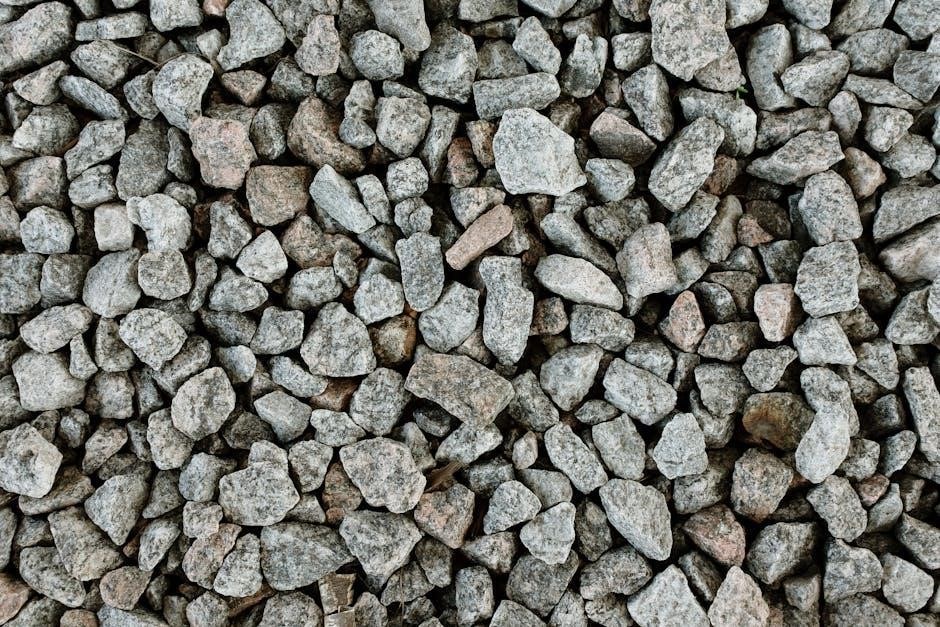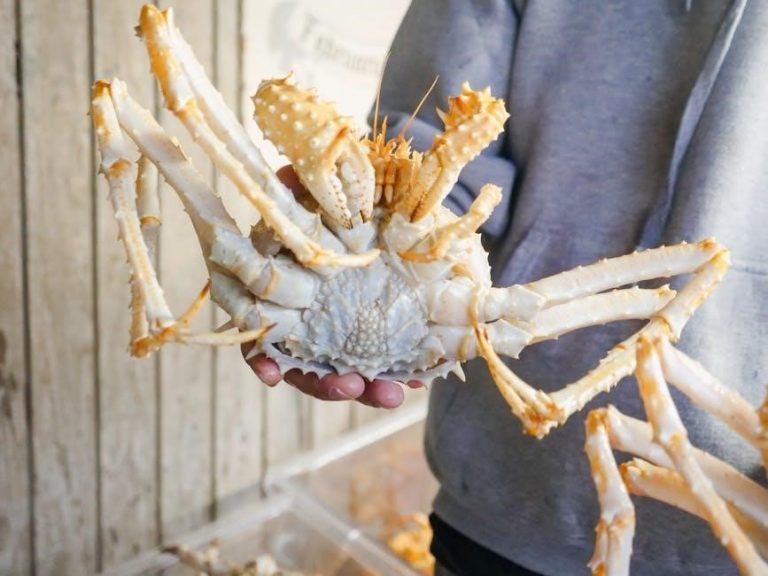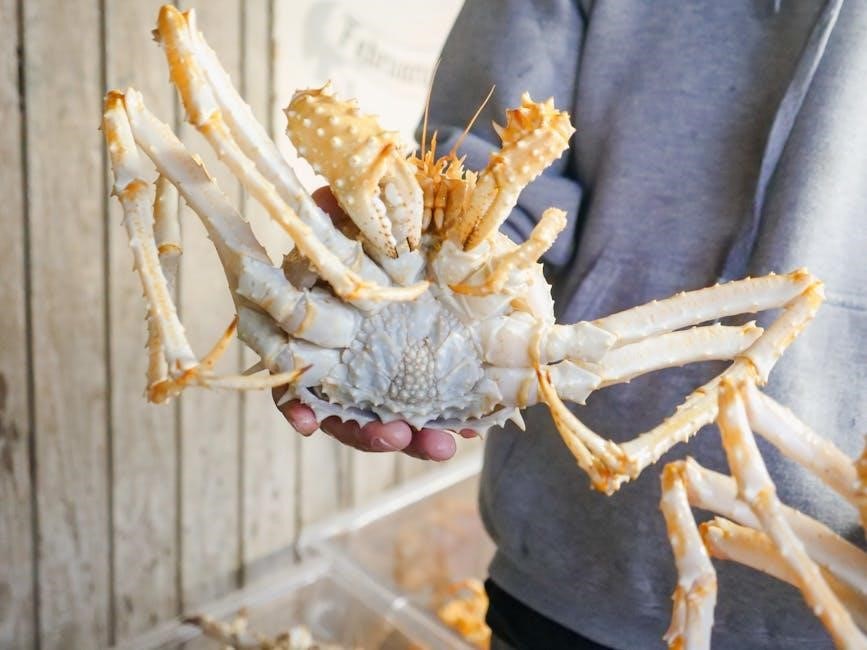
The 2024 Food Fishery NL Schedule outlines the recreational groundfish fishery, open for 39 days, supporting local communities and traditions while promoting sustainable fishing practices in Newfoundland and Labrador.
Overview of the 2024 Schedule
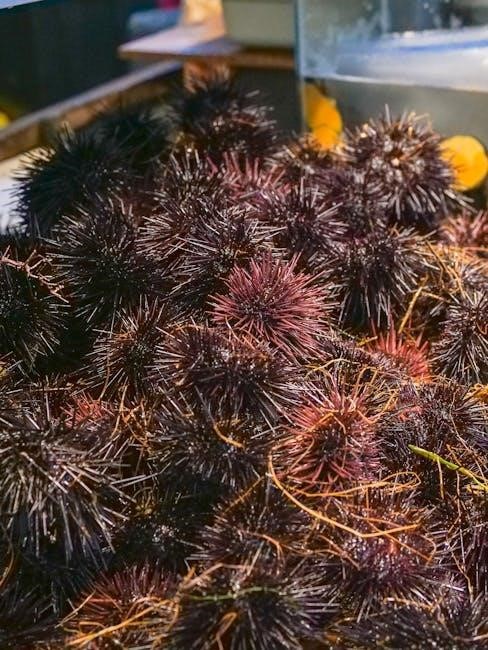
The 2024 Food Fishery NL Schedule provides a structured framework for the recreational groundfish fishery, ensuring a balance between accessibility and sustainability. The season is divided into two main periods: the summer and fall seasons. The summer season begins on Saturday, June 29, 2024, and runs every Saturday, Sunday, and Monday through September 2, 2024. The fall season resumes on Saturday, September 21, and continues for nine days, concluding on Sunday, September 29, 2024. Participants are limited to five groundfish per person per day, with a maximum of 15 per boat when three or more individuals are fishing. This schedule aims to support local communities while maintaining the health of fish populations and promoting responsible fishing practices.
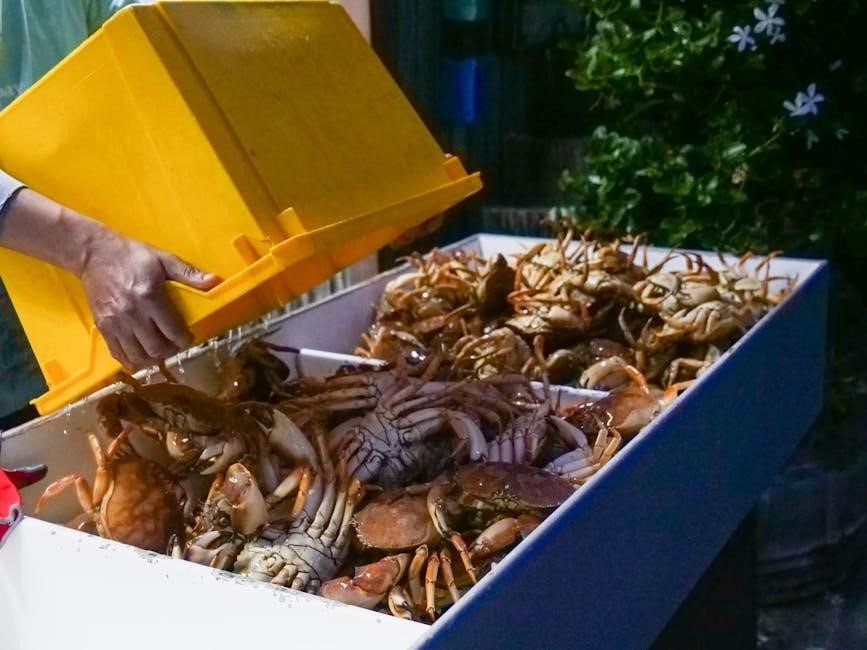
Importance of the Schedule for Participants
The 2024 Food Fishery NL Schedule is essential for participants as it provides clear guidelines and timelines, ensuring a structured and organized approach to the recreational groundfish fishery. This schedule helps participants plan their fishing activities in advance, allowing them to make necessary preparations and arrangements. It also promotes fairness and consistency, as everyone operates within the same framework. By adhering to the schedule, participants contribute to the sustainability of fish populations and support conservation efforts. Additionally, the schedule helps participants stay informed about their rights and responsibilities, fostering a sense of community and cooperation among those involved in the fishery. Overall, it serves as a vital tool for ensuring a successful and responsible fishing season.
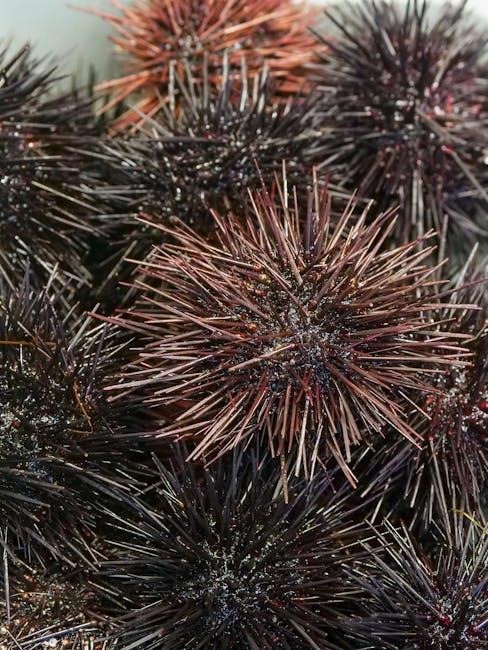
Key Dates for the 2024 Fishery Season
The 2024 Food Fishery NL Schedule outlines specific dates for the recreational groundfish fishery, ensuring participants know when the season opens and closes. These dates are crucial for planning fishing trips and adhering to regulations. The schedule is divided into summer and fall seasons, with exact start and end times provided to avoid confusion. Staying informed about these key dates helps participants comply with rules and make the most of their fishing opportunities. The scheduled periods are designed to balance recreational access with conservation goals, ensuring the fishery remains sustainable for future generations.
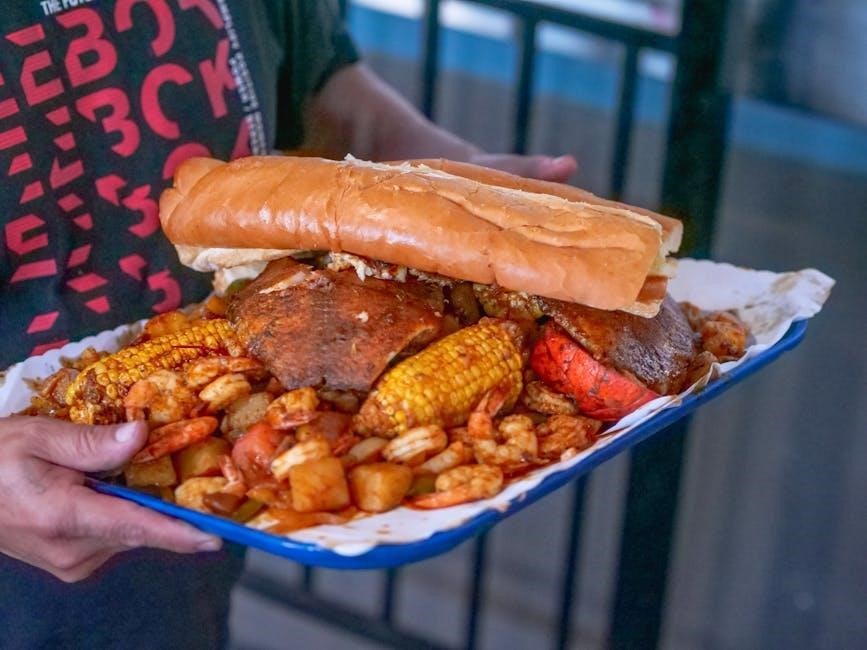
Summer Season Dates
The 2024 Food Fishery NL Schedule outlines the summer season dates, providing clarity for participants. The summer season typically begins on May 1st and runs through September 30th, offering an extended period for recreational fishing. However, specific weekends in July and August are designated for groundfish fishing, allowing participants to plan accordingly. These dates are carefully selected to align with peak fishing conditions and ensure sustainability. Participants are reminded to adhere strictly to these timelines to avoid penalties and support conservation efforts. The summer season is a popular time for both locals and visitors to enjoy Newfoundland and Labrador’s renowned fishery. For exact dates and updates, refer to the official Food Fishery NL 2024 Schedule PDF.
Fall Season Dates
The 2024 Food Fishery NL Schedule specifies the fall season dates, which are shorter than the summer season. The fall season typically begins on September 9th and concludes on September 17th, 2023. These dates are chosen to coincide with optimal fishing conditions during the transition from summer to fall. Participants are encouraged to verify the exact dates in the official Food Fishery NL 2024 Schedule PDF, as they may be subject to change based on fish stock assessments and environmental conditions. Adhering to these dates ensures responsible fishing practices and supports conservation efforts. The fall season offers a unique opportunity to catch groundfish species during their peak activity periods. Stay updated by consulting the official schedule for any adjustments or announcements regarding the fall season.
Recreational Groundfish Fishery Regulations
The 2024 Food Fishery NL Schedule outlines rules for recreational groundfish fishing, including permits, gear restrictions, and catch limits to ensure sustainable and responsible fishing practices.
Catch Limits and Restrictions
The 2024 Food Fishery NL Schedule establishes clear catch limits and restrictions to ensure the sustainability of groundfish populations. Participants are allowed a maximum of 15 groundfish per person per day, with a minimum size limit of 35 cm for most species. These limits apply to all recreational fishers, regardless of gear type. Restrictions also prohibit the retention of certain species during specific times to protect spawning populations. Additionally, no more than two groundfish can be caught and retained per person if they are of the same species. These measures aim to balance recreational fishing with the need to preserve fish populations for future seasons. For detailed rules, participants are advised to consult the official 2024 schedule. Adhering to these limits is crucial for maintaining healthy marine ecosystems. Penalties may apply for exceeding catch limits or violating size restrictions.
Licensing Requirements
Participation in the 2024 Food Fishery NL requires proper licensing to ensure compliance with regulations. Recreational fishers must obtain a Food Fishery License, which is available through the Department of Fisheries and Oceans (DFO) or authorized vendors. Licenses are issued to individuals and are non-transferable. Applicants must provide proof of residency and identity, such as a National ID Card or driver’s license. Licenses are valid for the entire 2024 season but must be carried at all times while fishing. Failure to produce a valid license can result in fines or confiscation of gear. Licensing fees support conservation efforts and enforcement of fishery regulations. For more details, refer to the official 2024 Food Fishery NL Schedule PDF. Always ensure your license is up to date before engaging in the fishery. Compliance is essential for maintaining access to this recreational opportunity.
The Role of the Food Network in Promoting the Fishery
The Food Network plays a vital role in showcasing the 2024 Food Fishery NL, highlighting its cultural significance and attracting participants through engaging content and broadcasts.
Featuring Local Recipes and Chefs
The Food Network highlights the 2024 Food Fishery NL by showcasing local chefs and their unique seafood recipes, celebrating Newfoundland and Labrador’s culinary heritage. These features not only promote the fishery but also educate audiences on sustainable seafood practices and traditional cooking methods. By collaborating with local culinary experts, the network emphasizes the importance of fresh, responsibly sourced ingredients. This initiative also provides a platform for chefs to share their creative interpretations of classic dishes, further enhancing the cultural appeal of the fishery. Such programming attracts food enthusiasts and participants alike, fostering a deeper connection to the region’s fishing traditions and vibrant food culture.
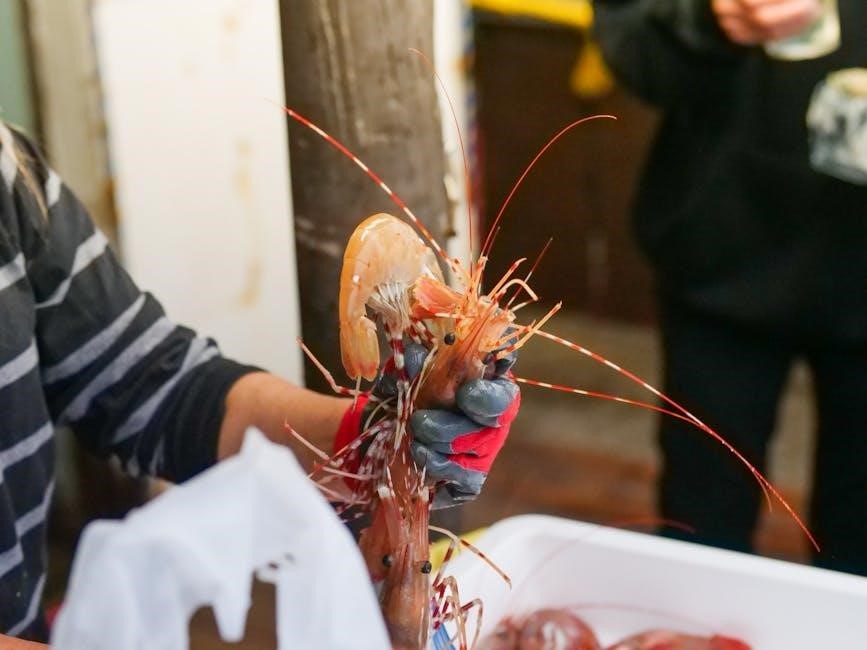
Broadcasting the Fishery Schedule
The Food Network plays a pivotal role in promoting the 2024 Food Fishery NL schedule by broadcasting key dates, updates, and related content to a wide audience. Through televised segments, online platforms, and social media, the network ensures that participants and enthusiasts stay informed about the season’s timelines. Regular reminders and highlights from the schedule are shared, emphasizing important deadlines and peak fishing periods. This outreach not only enhances participation but also fosters a sense of community among those involved. By leveraging its broad reach, the Food Network helps ensure the fishery’s success while keeping the public engaged and educated about sustainable fishing practices and conservation efforts tied to the 2024 season.
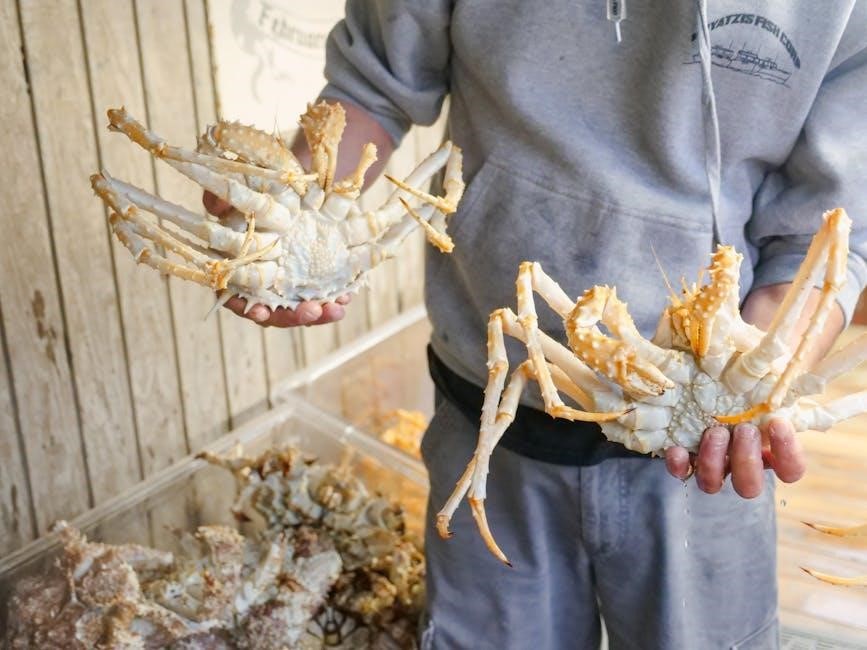
Conservation and Sustainability Efforts
The 2024 schedule implements catch limits and protected areas to safeguard fish populations, ensuring sustainable fishing practices while maintaining marine environmental balance for future generations;
Measures to Protect Fish Populations
The 2024 Food Fishery schedule includes strict measures to protect fish populations, such as catch limits, closed areas, and seasonal closures to prevent overfishing. Monitoring systems track fish stocks, ensuring compliance with scientific recommendations. Enforcement initiatives, including patrols and inspections, are in place to prevent illegal fishing activities. Additionally, the schedule promotes the use of sustainable fishing gear to minimize bycatch and habitat damage. Public education campaigns highlight the importance of responsible fishing practices to maintain healthy fish populations. These measures aim to balance recreational and food fisheries with long-term conservation goals, ensuring the sustainability of marine resources for future generations.
Educational Campaigns for Participants
The 2024 Food Fishery NL schedule includes educational campaigns to inform participants about best practices and regulations. These campaigns aim to promote sustainable fishing and environmental stewardship. Workshops and online resources are available to educate anglers on topics such as catch limits, gear usage, and fish handling. Outreach programs focus on raising awareness about the importance of conservation and the impact of human activities on marine ecosystems. Interactive materials, including videos and infographics, are provided to engage participants and ensure they understand their role in maintaining healthy fish populations. These initiatives foster a culture of responsibility among fishery participants, helping to ensure the fishery’s long-term sustainability while encouraging compliance with regulations;
Cultural and Historical Significance
Newfoundland and Labrador’s food fishery is deeply rooted in its cultural heritage, reflecting centuries of fishing traditions and community bonds. It signifies resilience, resourcefulness, and shared identity.
The Role of Fishing in Newfoundland and Labrador’s Heritage
Fishing has been the cornerstone of Newfoundland and Labrador’s identity, shaping its economy, culture, and way of life for centuries. The industry, rooted in European settlement, reflects the resilience and adaptability of its people. Traditionally, fishing provided sustenance and livelihood, fostering strong community ties and a deep connection to the sea. The province’s folklore, music, and cuisine are infused with maritime influences, celebrating its fishing heritage. Today, the food fishery continues this legacy, preserving traditions while adapting to modern practices. It serves as a reminder of the province’s history and its people’s enduring relationship with the ocean, ensuring that fishing remains central to Newfoundland and Labrador’s cultural identity.
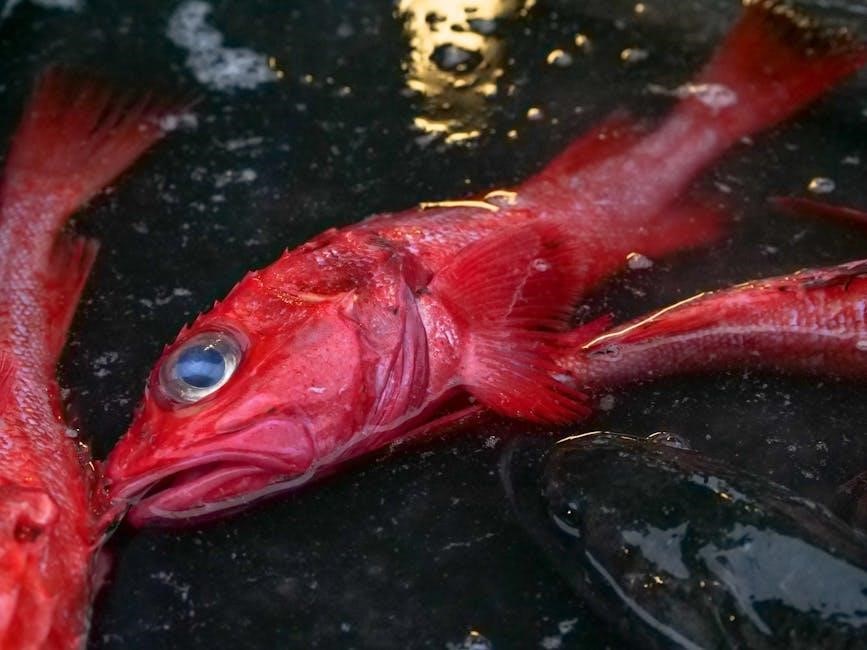
Community Events Surrounding the Fishery
Community events play a vital role in celebrating the food fishery tradition in Newfoundland and Labrador. Festivals, fishing derbies, and cultural gatherings highlight the importance of the fishery to local heritage. These events often feature traditional music, seafood cook-offs, and educational workshops, fostering a sense of community and shared pride. Many events are timed to coincide with key dates in the fishery schedule, such as the opening of the summer and fall seasons. They provide opportunities for participants to share knowledge, showcase local cuisine, and promote sustainable fishing practices. These gatherings not only entertain but also educate, ensuring the fishery’s cultural and environmental significance is passed to future generations. They are a celebration of tradition, community spirit, and the enduring connection to the sea.
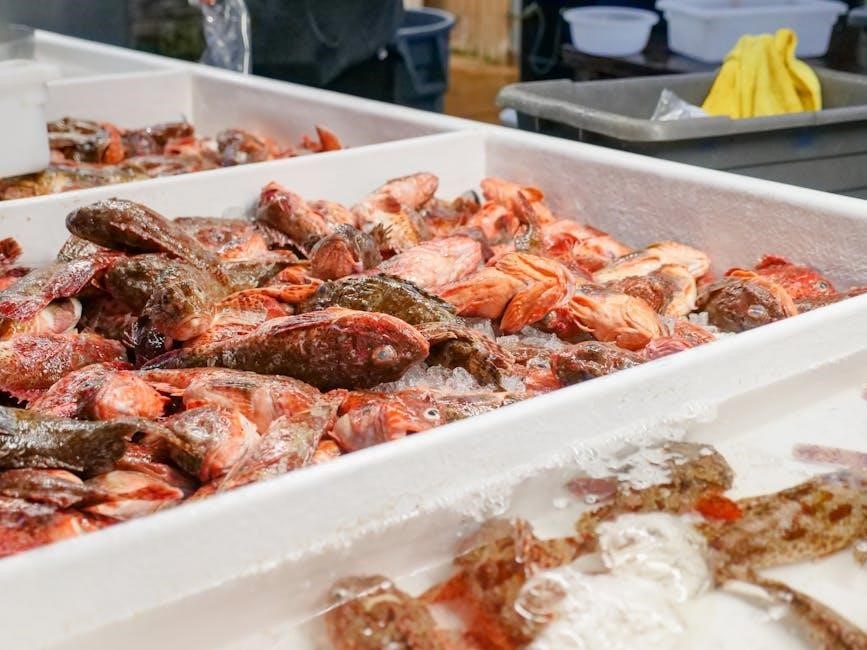
Participating in the Fishery
Participating in the food fishery requires adherence to guidelines, fostering community engagement and responsible practices. It highlights the cultural significance and economic importance of sustainable fishing traditions.
Gear and Equipment Guidelines
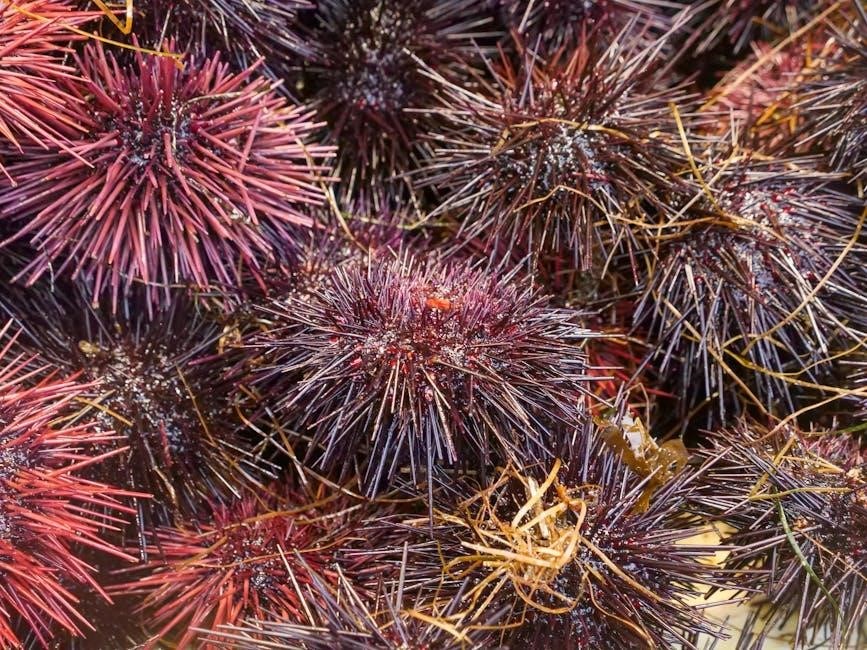
Participating in the food fishery requires specific gear and equipment to ensure compliance with regulations and sustainability. Handlines, jiggers, and traps are commonly used, with limits on the number of hooks or traps per participant. Properly marked gear is mandatory to prevent loss and confusion. The use of biodegradable materials is encouraged to reduce environmental impact. All equipment must meet size and design specifications outlined in the 2024 schedule to protect fish populations and habitats. Participants are advised to review the gear guidelines in the official PDF to ensure full compliance. Failure to adhere to these rules may result in penalties. Adhering to these guidelines helps maintain the balance between recreational fishing and conservation efforts, supporting the long-term health of marine resources.
Best Practices for Responsible Fishing
Responsible fishing practices are essential to ensure the sustainability of the food fishery. Participants should handle fish carefully to minimize harm and release undersized or unwanted catches promptly. Measuring fish accurately and adhering to size limits helps protect juvenile populations. Avoiding prolonged removal of fish from the water reduces stress and mortality. Using barbless hooks can minimize injury to fish and improve survival rates after release. Checking local regulations and respecting closed areas or protected species is crucial. Participants should also avoid littering and remove all gear and debris from fishing sites. By following these best practices, anglers contribute to the conservation of fish populations and help maintain the fishery for future generations. Responsible fishing fosters a balance between recreation and environmental stewardship.
The 2024 Food Fishery NL schedule successfully promoted sustainable practices and community engagement. Future seasons aim to enhance conservation efforts and improve accessibility for participants.
Recap of the 2024 Season
The 2024 Food Fishery NL season was marked by strong participation and a focus on sustainability. Participants adhered to catch limits, ensuring the preservation of fish populations. Community events and educational campaigns played a pivotal role in engaging both locals and visitors. The schedule was well-organized, with clear dates for summer and fall seasons, allowing participants to plan effectively. Local chefs and media outlets showcased the fishery’s importance, highlighting its cultural and economic value. Conservation efforts were prioritized, with measures like closed areas and gear restrictions in place to protect vulnerable species. Overall, the season was successful, balancing recreation with environmental stewardship.
The collaborative efforts of participants, regulators, and communities ensured a positive outcome for the 2024 season, setting a strong foundation for future fisheries.
Looking Ahead to Future Seasons
Future seasons of the Food Fishery NL aim to build on the successes of 2024, with a continued emphasis on sustainability and community engagement. Plans are underway to expand educational programs, ensuring participants are well-informed about conservation practices. Technological advancements, such as improved monitoring systems, are expected to enhance enforcement of catch limits and protected areas. There is also a focus on increasing accessibility for new participants, particularly youth, to foster a love for fishing and its cultural significance. Collaboration between local communities, regulators, and environmental organizations will remain a priority to ensure the long-term health of fish populations and the fishery’s viability for generations to come.
By addressing feedback from the 2024 season, future schedules will strive to balance recreational opportunities with environmental stewardship.
